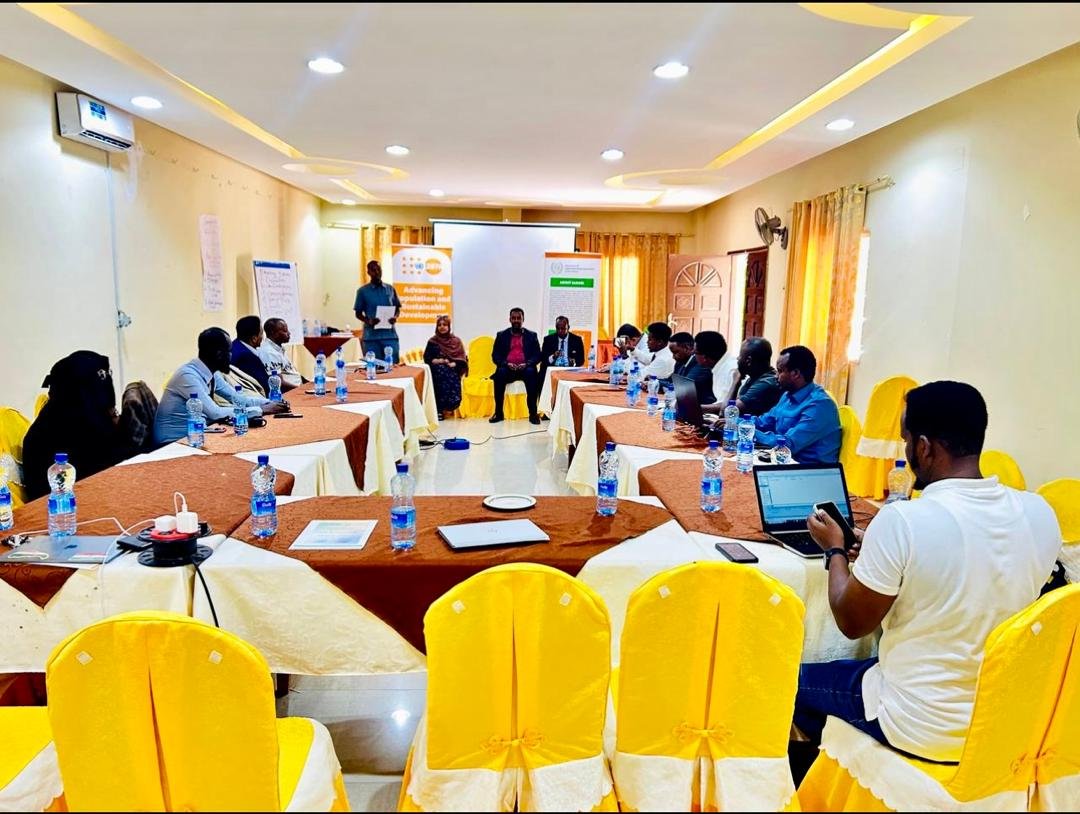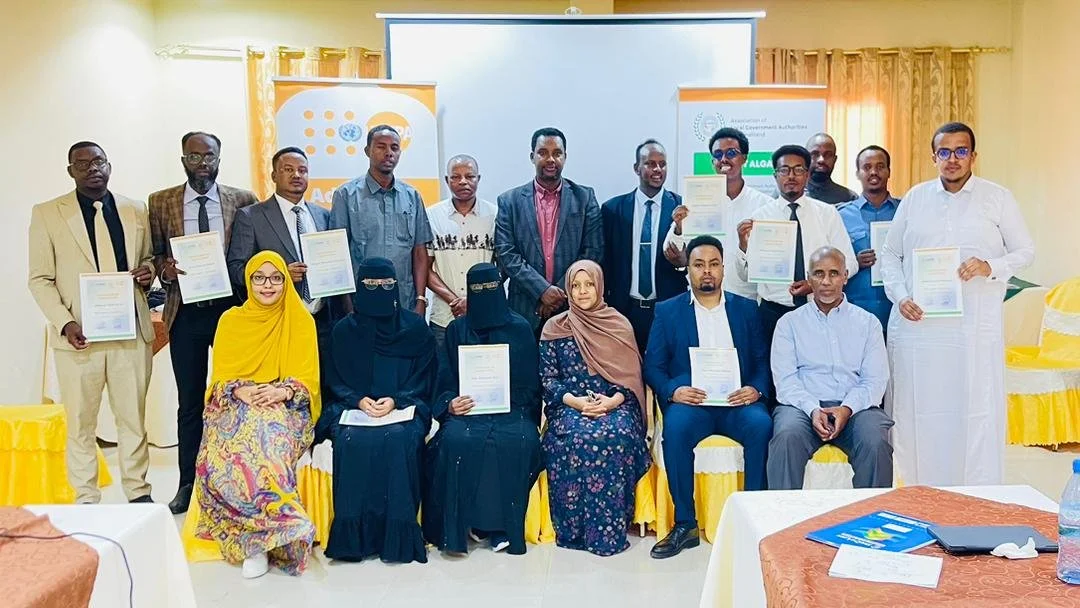Mapping the Future: Enhancing Local Government Capacity for Effective Urban Planning and Service Delivery through GIS Technology
Hargeisa, Somaliland
The Training of Trainers (TOT) program on Geographic Information Systems (GIS) and related skills, held from 1st to 10th September 2024, marked a significant milestone in the capacity-building efforts for local government staff. The training, organized by the Association of Local Government Authorities of Somaliland (ALGASL) in Collaboration with UNFPA, brought together participants from various districts across Somaliland.
Throughout the intensive 10-day program, participants demonstrated remarkable progress. The training was designed to enhance the competency of local government staff in utilizing GIS tools for improving service delivery, urban planning, and data-driven decision-making processes. With these skills, the trainees are now well-equipped to contribute effectively to local development projects and community-focused initiatives.
During the closing session, participants were awarded certificates recognizing their successful completion of the program. Many participants expressed their gratitude and confidence in applying their newly acquired skills in their respective roles.
By empowering local government staff with cutting-edge GIS knowledge, this training is expected to have a lasting impact on improving efficiency in areas such as land use planning, resource management, and infrastructure development.
As ALGASL we are pleased to see the commitment and dedication shown by the participants. Their readiness to apply these essential skills will undoubtedly enhance local governance and service delivery across Somaliland.
This initiative, supported by UNFPA, reflects a shared vision of strengthening the capacity of local governments to utilize technology for development planning and resource management. It aligns with the broader goal of improving public service delivery, fostering transparency, and ensuring sustainable development.
Key Outcomes
The GIS training proved successful in advancing the skills of local government staff in QGIS for spatial data management and analysis. Key outcomes of the training included:
Enhanced Collaboration: Improved cooperation among GIS and IT departments across local governments.
Strengthened Capacity: Increased ability to manage spatial data, crucial for enhancing urban planning, health services, and infrastructure management.
Recommendations for Continued Growth
To build on the successes of the training, the following recommendations have been proposed:
Further Training: Implement follow-up sessions on advanced GIS topics, such as spatial analysis and data modeling, to deepen participants' knowledge and practical applications in service delivery.
Ongoing Mentorship: Continued support from UNFPA and ALGASL to help participants integrate their newfound skills into daily work practices.
Data Sharing and Collaboration: Encourage inter-departmental sharing of geospatial data to optimize the use of GIS for coordinated planning and service delivery at the local government level.
The successful conclusion of this TOT program marks a pivotal moment in building resilient, data-driven local governments capable of addressing the challenges of modern urbanization and service delivery.
This training marks a significant milestone in empowering local government staff with the necessary tools to improve governance through GIS technology. The collaboration between UNFPA and ALGASL ensured a well-structured and impactful program, equipping participants to utilize geospatial data effectively in their roles, ultimately contributing to more efficient, transparent, and sustainable local government services across Somaliland.
Amani Yusuf Yonis
Communication Officer
Association of Local Government Authorities of Somaliland (ALGASL)


